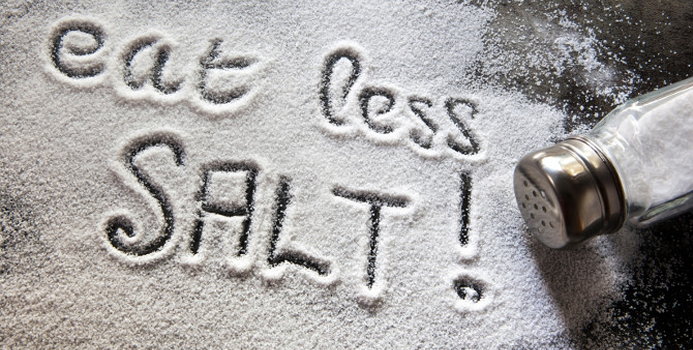According to the U.S. Department of Agriculture, most Americans consume too much sodium - the average intake at 3,400 mg for those 2 years and older.
Current dietary guidelines recommend consuming less than 2,300 milligrams (mg) of sodium a day or reducing to 1,500 mg for those who are African American, have hypertension, diabetes, chronic kidney disease, and/or are over the age of 51.
While these have been the recommendations for years, controversy surrounds the topic of sodium. Some scientists say the current recommendation is too high, others say higher levels are safe. One thing they all agree on is certain populations, like those at risk for cardiovascular disease or who have high blood pressure or diabetes, should avoid excessive amounts.
In 2013, the Institute of Medicine, an independent, nonprofit organization that works apart from the government, examined recent research to determine if evidence supported the current recommendations. The expert committee reported research does show that reducing sodium intake (from very high to more moderate levels) did improve health. But they also stated that lowering sodium too much could actually increase a person's risk of some health problems.
The 2015 Dietary Guidelines, still in draft form but set to be released later this year, look as if they will keep the 2,300 mg limit but drop the stricter 1,500 mg limit.
Other Considerations
Many of the studies surrounding sodium vary based on the way they are conducted and are limited in quantity and quality. There is more research that needs to be done when considering sodium's ultimate impact on health. Other variables exist that should be considered when looking at an individual's salt intake.
According to the Centers for Disease Control and Prevention (CDC), some individuals are more salt sensitive than others. The Harvard Health Publications state, "Those most prone to salt sensitivity include the elderly, African Americans, and people with hypertension, diabetes, or chronic kidney disease." However,there is currently no test to determine an individual's salt sensitivity.
Other factors include lifestyle and/or existing conditions. Brian Strom, MD, MPH professor of public health and preventive medicine and executive vice dean at the School of Medicine at the University of Pennsylvania noted, "Changes in diet are more complex than simply changing a single mineral."
Are You Consuming too Much Sodium?
Take a look at your health, your diet, your lifestyle - think about the big picture. Do you have high blood pressure? Are you at risk for cardiovascular disease? Get regular physicals and talk with your doctor and/or dietitian to see if you should be monitoring your salt intake more closely.
Sources of Sodium
Even if you avoid using the salt shaker, you can still be consuming a lot of sodium in your diet. The top 10 sources of sodium, according to the CDC, are
- Bread and rolls
- Cold cuts and cured meats
- Pizza
- Poultry
- Soups
- Sandwiches
- Cheese
- Pasta dishes
- Meat dishes
- Snacks
How to Reduce Sodium
Increase your Potassium intake (unless your doctor says otherwise).
According to the American Heart Association, the more potassium we eat, the more sodium we pass out of the body through urine. Potassium plays a role in reducing sodium, but it doesn't mean it will do all of the work.
Learn to read food labels.
Check the serving size for the food, then look at the sodium percent. If a food is 5% or less, it is a low sodium food. If it is 20% or higher, it is a high sodium food.
Consider the DASH diet.
The Dietary Approaches to Stop Hypertension is an eating plan designed to improve blood lipids and lower blood pressure, which reduces the risk of developing cardiovascular disease.
Use spices, herbs, and citrus to flavor foods instead of salt.
Create flavorful and satisfying meals without using any salt. Get creative!
For those who fear the reduction of salt, there is good news according to the American Heart Association, "Studies show that when people are given a lower sodium diet for a period of time, they begin to prefer lower-sodium foods and the foods they used to enjoy taste too salty."
Mandy Seay is a registered and licensed dietitian and certified diabetes educator who holds both a bachelor's degree in nutrition and in journalism. Mandy currently works as a nutrition consultant and freelance writer in Austin, Texas, where she specializes in diabetes, weight management, and general and preventive nutrition. If you would like to learn more, please visit Mandy's website at Nutritionistics.com.




